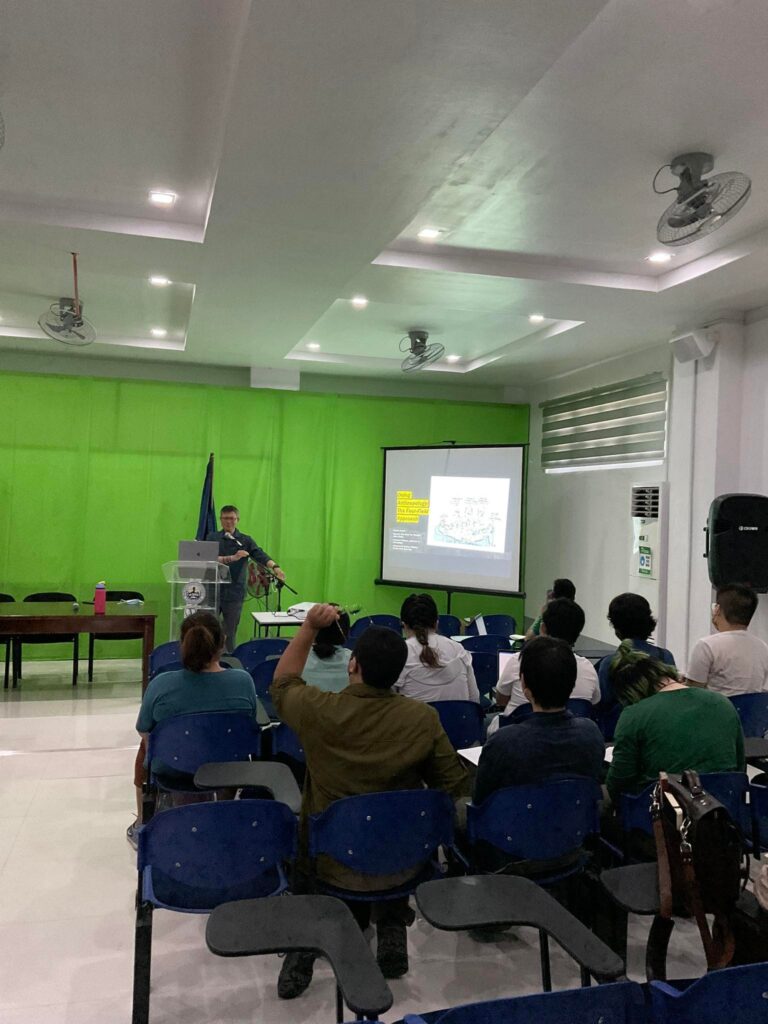BAP Field School Blog 2
- Post by: admin
- July 4, 2022
- No Comment
Saturday June 25, 2022
Lara Kristine Bacasen
UCLA
On the morning of the fifth day of the BAP Field school we made our way through the Partido State University Campus for an educational workshop on ethnography. The workshop began with an insightful documentary about the local traditional medical practice in the Bicol region. Two of our fellow BAP students, Dan Alerta and Noel Jay Roxas, were part of the creation of this beautiful piece. Their work highlighted the persisting native tradition of medicinal plants of the Bicol region. This cultural demonstration was followed by BAP Director Professor Acabado’s lecture on the subject of anthropology: what it is, its colonial history, and the need to include the community in an effort to decolonize the field and give back to the communities they work with. We were introduced to and warmly welcomed by the President of ParSU, Raul G. Bradecina, who expressed his support for our archaeological endeavors.

The next speaker, Professor Francisco “Kiko” Datar, spoke about ethnic identity and pride. He spoke about the lasting influence of colonial occupation and miseducation that causes dissonance in an individual’s identity. Inflexible teaching and lack of education in local histories and contexts create loose cultural roots that leave people insecure about their identities. He asked the audience what it means to be Filipino, or what it meant to be any national identity.
This discussion of the many ethnic identities within Philippines spoke to me personally because defining the identity of a Filipino is difficult: Growing up in the United States, I struggled with my cultural identity and connecting with my Filipino culture. I was unaware of the large cultural diversity of the Philippines. All I knew was my own struggle to connect with my Filipino peers who spoke about their experiences that were sometimes similar but often different from mine. It is nice to learn that culture and identity is complicated and always changing.
Later in the day we found ourselves in front of the ParSU dorms learning more about the coming field work and process. BAP co-directors Maddie and Mikhail taught us how to set up excavation plots for the sites and the extensive recording processes for each unit. It is my first time doing archeological work and I didn’t realize how meticulous these studies have to be. I was overwhelmed by the amount of detail need for recording but I am excited to learn more about the archeological process. We split into groups and attempted to set up 1x1m and 1x2m plots. It was difficult to coordinate, having to account for the terrain for the land and measurement errors. By the end, we were able to create a decent square and rectangle, the correct shapes for an excavation trench, but we certainly need more practice though.
For the final part of our day, we were invited to dinner by President Bradecina at Isang Cusina. The venue was beautiful, the employees were wonderful, and the food was delicious. The night was spent with good company as we shared pieces of our own cultures and identities. At the end of the day we thanked President Bradecina for his hospitality and retired to prepare for another day of discovery.
